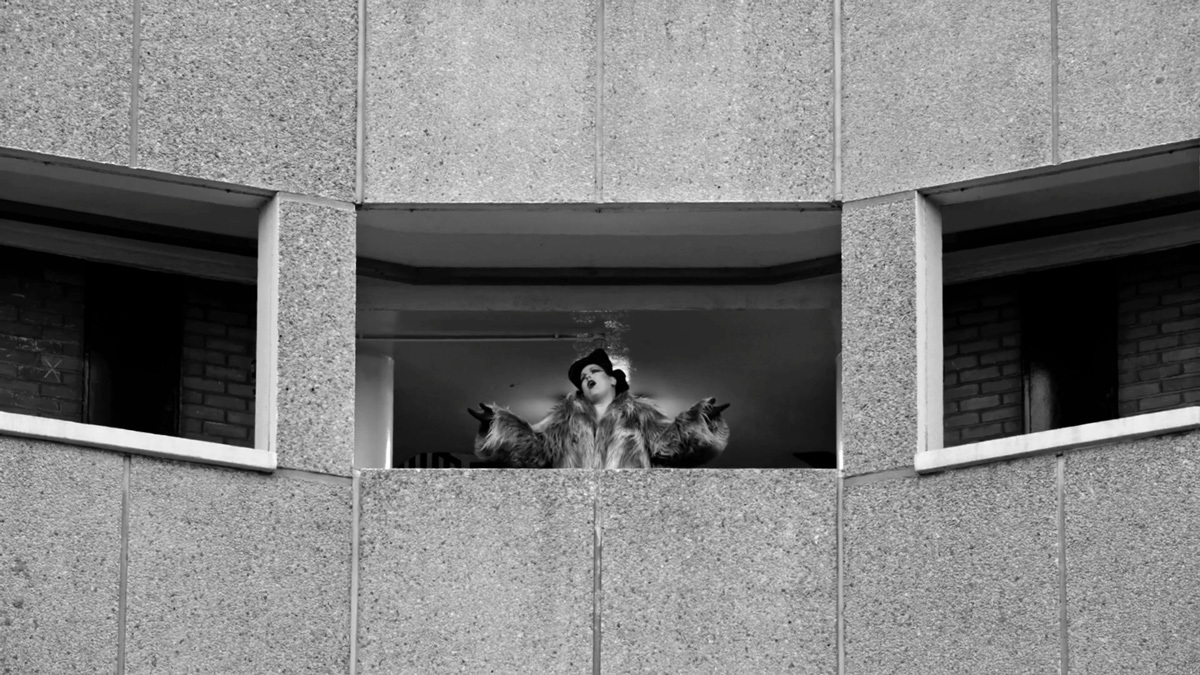Fearless leader of London fashion’s avant-garde Gareth Pugh will return to the runway on Saturday night to present a politically charged fall/winter 17 collection during London Fashion Week. Ahead of the show, Pugh reveals a short film teaser created with long-time collaborators Ruth Hogben and Andrea Gelardin (the duo who recently masterminded Lady Gaga’s Super Bowl performance).
Opening with the King Lear line, “‘Tis the time’s plague when madmen lead the blind,” the film stars Rebekah Del Rio, the enigmatic singer from David Lynch’s Mulholland Drive, who recreates her signature song from the film, Llorando. In the Lynch original, the singer collapses but her vocal continues, revealing that she was miming; a metaphor for the post-truth era, and a hint at the cinematic and political influences on Pugh’s upcoming collection.
i-D caught up with Gareth to find out which other film scenes have inspired his anarchic fashion perspective.
Paris is Burning
So many people love this film because it’s a view into a time that feels so distant from the current reality, yet you can appreciate the aesthetics, and the idiosyncrasies of people who have been pushed out of society; people who have been forced to create new traditions, new hierarchies. I like this scene because it basically reflects the politics of exclusion — the resignation, being browbeaten, but putting on the warpaint, and preparing to step out in defiance anyway.
HyperNormalisation
It’s impossible to pull one scene from this — it can’t really be broken down. But I do think it’s interesting that when laying this out Adam Curtis began around the same time as Paris Is Burning, in New York City in the late 70s, early 80s. The cultural pendulum had swung from the sexual revolution and collective action of the 60s to what he describes as “radical individualism,” when it became no longer about a movement, but a retreat into the detachment of self-interest and self-expression.
Game Change
I’ve seen this film about a dozen times! It’s really something. Everything that’s happening now is in there. Irresponsible, hasty decisions made to capture the news cycle. A post-truth media, that’s essentially become more about entertaining people than facts. Celebrity, narcissism, a lack of impulse control. It’s all there. This scene is the moment when you realize that Palin believes her own hype, and the people around her begin to realize the mistake they’ve made. Where a bad decision has become a runaway train.
Cabaret
This is my favorite film, and over the past few months it has been on my mind more than ever. The key scene for me is the MC announcing “in here life is beautiful” as outside the world burns. Sometimes when I consider what I do, the machinery that I’m part of, it feels as though you have to decide who you are — is it fight or flight? Do you present a glitzy sideshow, or do you look it in the eye? I’ve always erred toward escapism, to fantasy, as a way of dealing in a wider narrative. But sometimes I think it’s important to just fucking tell it like it is.
Mulholland Drive
I first fell in love with this film in 2012. I had seen it before, but I watched it in advance of my spring/summer 13 show and it had a huge effect on me, particularly this scene. The whole movie feels like a maze and this scene for me feels like the emotional centerpiece. I was lucky enough to meet Rebekah Del Rio a few years ago, and I knew that I wanted to work with her on a film to accompany my new collection. The forthcoming show will be pretty cinematic in scope and I loved the idea of implicitly referencing the smoke and mirrors of Hollywood and the power of image-making, and a scene that for me feels like a fitting metaphor for truth in a post-truth arena.
Credits
Text Charlotte Gush
